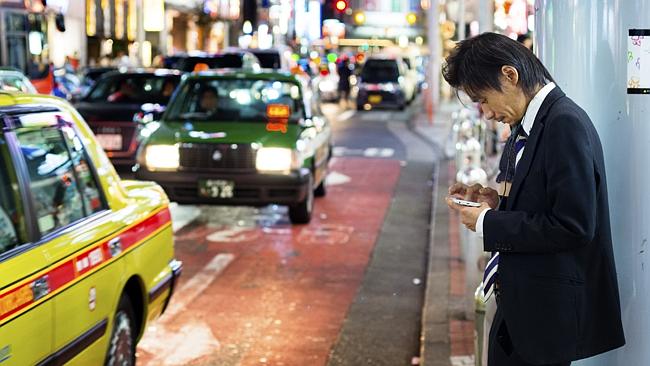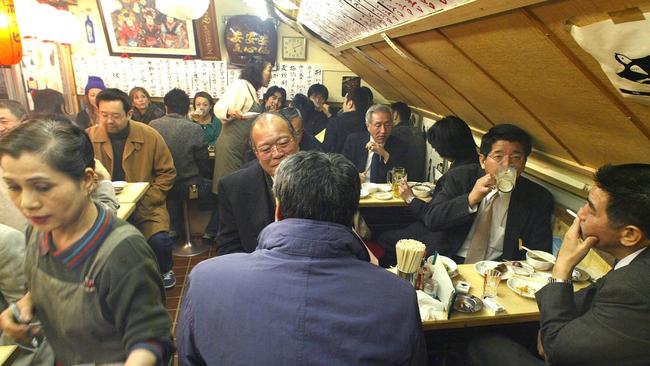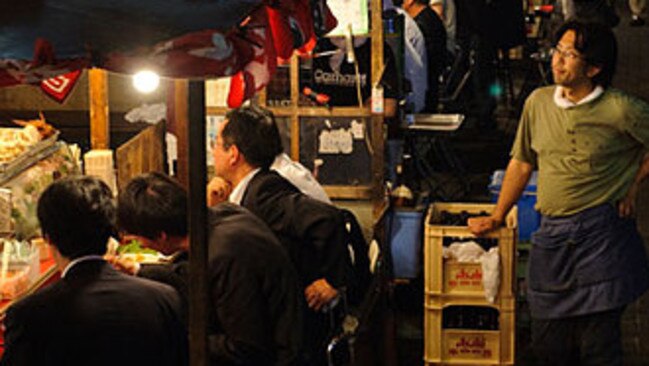The country working itself to death
NEXT time you leave the office late, spare a thought for these workers who do 80-hour weeks, all year round. They’re literally working themselves to death.

IN this country, people are literally working themselves to death.
Every year, hundreds of overstressed Japanese workers succumb to heart attack, stroke or suicide due to a lack of work-life balance.
The problem, which first rose to prominence in the 1980s, has become so bad it even has its own name: karoshi. Death by overwork.
Last week, a British expat living in Tokyo going by the handle ‘Stu in Japan’ posted a video on YouTube titled ‘A week in the life of a Tokyo salary man’.
The video diary documented a typical 80-hour week during his financial services company’s “busy season” from January to March — 13-hour days for six days a week, leaving the office after 11pm every night, with barely time to squeeze in dinner.
It was a humorous look at a serious issue.
“There are definitely people in Tokyo who do this all year round in order to support their families,” he wrote. “I couldn’t imagine having to do this if I had those kinds of responsibilities as well.”
Late last year, the Japanese government finally decided to do something about the endemic culture of overwork, which has been blamed not just on a growing number of deaths, but also the country’s critically low birth rate and declining productivity.
Although Japan is notorious for hard work, it’s equally known for inefficiency and bureaucracy. Workers sit around in the name of team spirit, despite questionable performance.
Younger workers feel uncomfortable going home before their bosses do. Working overtime for free, called “sah-bee-soo zahn-gyo”, or “service overtime”, is prevalent.


According to Japanese government figures from 2013, around 22 per cent of Japanese full-time employees worked more than 49 hours a week, while 8.8, or around 4.74 million people, worked more than 60 hours per week.
That 60-hour mark crosses the threshold of 80 hours monthly overtime, which is one of the criteria used in determining whether a death can be attributed to overwork.
According to The Japan Times, more than 300 people each year over the past decade have been awarded compensation under work-related accident insurance after suffering heart attacks or strokes, with a growing number claiming damages for work-related mental health problems.
In November, a restaurant chain was ordered to pay ¥57.9 million ($A620,000) to the family of one worker who hanged himself after working an average of 190 hours of monthly overtime in the seven months leading up to his death.
Barely half the holiday days allotted to Japanese workers are ever taken, an average of nine days per individual a year. Under the new law, employers will be responsible for ensuring their workers actually take their holidays.
The new law will allow for more flexible work hours, encouraging parents to spend more time with their children during summer months, for instance, when school is closed. Experts say the law is a start, while acknowledging the roots of the dilemma lie deep.
In an editorial last November, The Japan Times welcomed the new law despite describing the move as “largely symbolic”.
“The law makes it the duty of the government to take steps to eliminate overwork-induced deaths or suicides of employed workers, but it does not impose new work-hour regulations or penalties on businesses that have employees work excessive hours,” the paper wrote.



